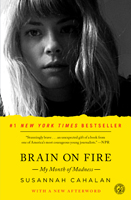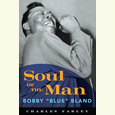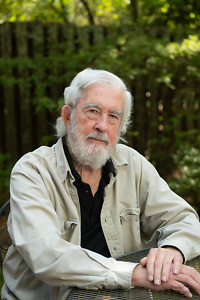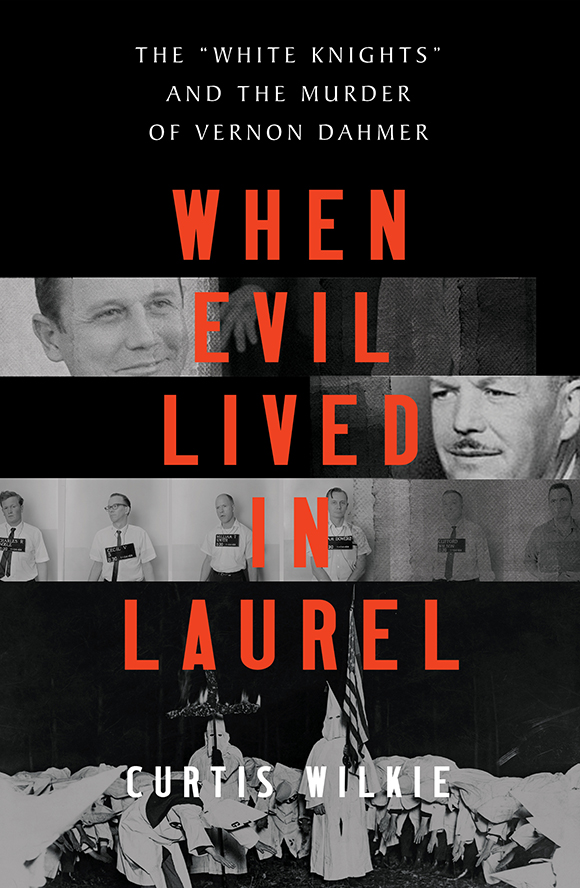The Demon Brain
Susannah Cahalan talks with Chapter 16 about a rare disorder that took her away from her loved ones and herself
One morning in 2009, Susannah Cahalan wondered whether two red dots on her arm meant she had bed bugs in her apartment. Within a few weeks, she was suffering from paranoia, hallucinations, and seizures, and she had lost her ability to write and speak. In fact, her behavior was so extreme that, more than three years later, her boyfriend could not watch The Exorcist: “It brings him right back to those strange ‘panic attacks’ I experienced in the hospital, and to my first seizure as we watched TV on the pullout couch.”
 Still, Cahalan was actually one of the lucky ones. Instead of ending up in a mental ward until no semblance of herself remained, she received an accurate diagnosis: autoimmune encephalitis , a rare neurological disorder. As she recovered, with almost no memory of her “month of madness,” Cahalan used her skills as a journalist to discover what had happened to her and to open the door for correct diagnoses for others. Cahalan answered questions from Chapter 16 via email:
Still, Cahalan was actually one of the lucky ones. Instead of ending up in a mental ward until no semblance of herself remained, she received an accurate diagnosis: autoimmune encephalitis , a rare neurological disorder. As she recovered, with almost no memory of her “month of madness,” Cahalan used her skills as a journalist to discover what had happened to her and to open the door for correct diagnoses for others. Cahalan answered questions from Chapter 16 via email:
Chapter 16: This has to be one of the most frightening books I’ve read. You’re young, you’re healthy—and then suddenly your brain simply goes haywire, but in a way that makes the wrong diagnosis the most plausible. So the first question has to be, “How are you, now?”
Cahalan: I’m fantastic. Thank you! And though I do feel great, I still don’t know if I am “back” to the person before the illness. In fact, I know I’m not the same person as I was pre-illness, but I’m not sure if that’s due to the experience of surviving, the process of writing a book, or if the disease actually left a biological imprint on the person I am now. All I know is that I’m different but still fundamentally the same person; at least I believe so.
Chapter 16: When you were recovering, you write, the worst part was “the falsely enthusiastic, carefully enunciated tone people used; they were talking down to me as if I were a toddler or a very old person.” Are people still unsure about how to relate to you? How do you work around the awkwardness?
Cahalan: I don’t think people struggle to relate to me now because my friends and family tell me that I appear to be the same person that I was before the illness, perhaps (hopefully!) a bit more mature, but otherwise the same. So I don’t experience those awkward moments in my day-to-day life anymore. But I do get awkward silences when strangers ask me, “What is your book about?” Then I get that open-mouthed gawk that I so despised when I was recovering. I have been trying to figure out a way to describe my book without eliciting that kind of response, but have failed miserably so far. I think it would probably be weirder if the plot of my book elicited no emotion, so I guess you could say I’m grateful for the bug-eyed stares!
 Chapter 16: You did not take the psychologist’s advice to undergo cognitive rehabilitation and psychotherapy and now regard that decision as a mistake. Why?
Chapter 16: You did not take the psychologist’s advice to undergo cognitive rehabilitation and psychotherapy and now regard that decision as a mistake. Why?
Cahalan: I mainly consider that a mistake because it was so stupid and pig-headed of me at the time. And I hate that those are attributes I have. Also, in many ways I’m looked up to as a survivor of autoimmune encephalitis, and I’m disappointed that I can’t provide a better example. So now I go out of my way to tell people to go to therapy or rehab. I always tell them, “Why not?”
Chapter 16: While you don’t remember much of your “month of madness,” it was obviously extremely traumatic for your family and your boyfriend. How did they react when you decided to write a memoir about your ordeal?
Cahalan: They were all supportive. I think they realized that this book was something I needed to do and that there was really no choice in the matter. I never heard a negative word from any of them about it. And still haven’t. I’m eternally grateful for that.
Chapter 16: What was it like to piece together that month of your own life from interviews, your father’s journal, and videotapes of your stay in the hospital? How did you deal with yourself as subject when you had little memory of that self?
Cahalan: It was the definition of a surreal or out-of-body experience, especially when watching the videos. It’s one thing to hear about your escape attempts, your angry rages, your punching of nurses but an entirely different thing to watch “yourself” do it. To deal with writing about this self that I had no memory of, I had to disengage. I really treated that time of my life as if I was writing about a wholly separate person. I tried to maintain that distance while writing, but it’s impossible to uphold because in the end you are writing about yourself, no matter how far removed you feel from “her.”
Chapter 16: Other patients and their families are reaching out to you now. How does it feel to be the poster woman for autoimmune encephalitis?
Cahalan: It’s been an incredible experience meeting other survivors of autoimmune encephalitis, and has been tremendously rewarding knowing that my story has helped people. At times it can be a bit overwhelming, but I’m so lucky to have an incredible support system in the nonprofit Autoimmune Encephalitis Alliance, which does a remarkable job of helping patients and doctors and family members find answers and cope through very difficult times. If you’re interested in getting help or finding out more about the disease, I really hope you check them out.





